With its dizzying metropolises, blissful islands and immense national parks (not to mention a legendary cuisine!), Vietnam tops many travelers’ bucket lists.
The highlights of the country are innumerable, but there are some spots that simply can’t be skipped.
Here’s our list of the top places to visit in Vietnam.
Halong Bay
Halong Bay’s stunning combination of karst limestone peaks and sheltered, shimmering seas is one of Vietnam’s top tourist draws. But with more than 2000 islands, there’s plenty of superb scenery to go around. Definitely book an overnight cruise and make time for your own special moments on this World Heritage wonder – rise early for an ethereal misty dawn, or pilot a kayak into grottoes and lagoons. Prefer your karst landscapes a little less crowded? Try the less touristy but equally spectacular Lan Ha Bay, located a little way to the south, or Bai Tu Long, to the north.
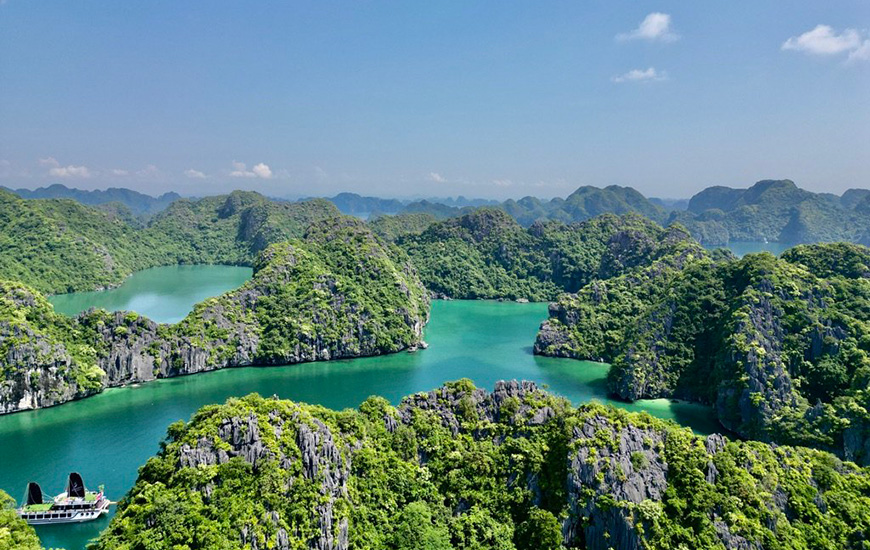
Halong Bay is a major tourist draw in Vietnam © Mr Linh's Adventures
Phong Nha–Kẻ Bàng National Park
Vietnam’s headline natural wonder is the jaw-dropping Hang Son Doong, one of the world's largest caves, located in the heart of
Phong Nha–Kẻ Bàng National Park. The images of ant-like travelers shining head torches around the vast, empty caverns tug on the wanderlust strings; however, unless you have a cool $3000 to spend on a tour, you won’t be able to enter this subterranean marvel. But fear not because Phong Nha-Ke Bang has a wealth of other caves that you can clamber, crawl, boat or zipline through for a fraction of the cost, including Hang Én, which boasts its own beach. More so, there are plenty of attractions above ground, including guided treks around the oldest karst mountains in Asia, home to tigers, elephants and 300 species of bird.
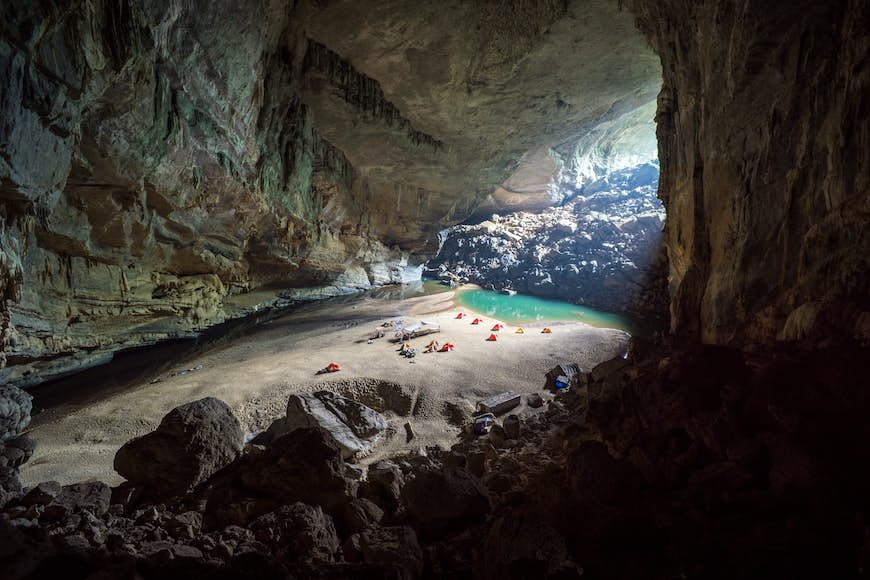 Find caves (like Hang En), mountains and lakes in Phong Nha–Kẻ Bàng National Park © James Kelley / Getty Images
Find caves (like Hang En), mountains and lakes in Phong Nha–Kẻ Bàng National Park © James Kelley / Getty Images
Ho Chi Minh City
Increasingly international but still unmistakable Vietnamese, former Saigon has visceral energy that will delight big-city devotees.
HCMC doesn’t inspire neutrality: you’ll either be drawn into its thrilling vortex and hypnotized by the perpetual whir of its orbiting motorbikes, or you’ll find the whole experience overwhelming (and some visitors seem to be perpetually seesawing between the two). Dive in and you’ll be rewarded with a wealth of history (the War Remnants Museum is an essential stop), delicious food and a vibrant nightlife that ranges from beers on street corners to swanky cocktail lounges. The heat is always on in Saigon; loosen your collar and enjoy.
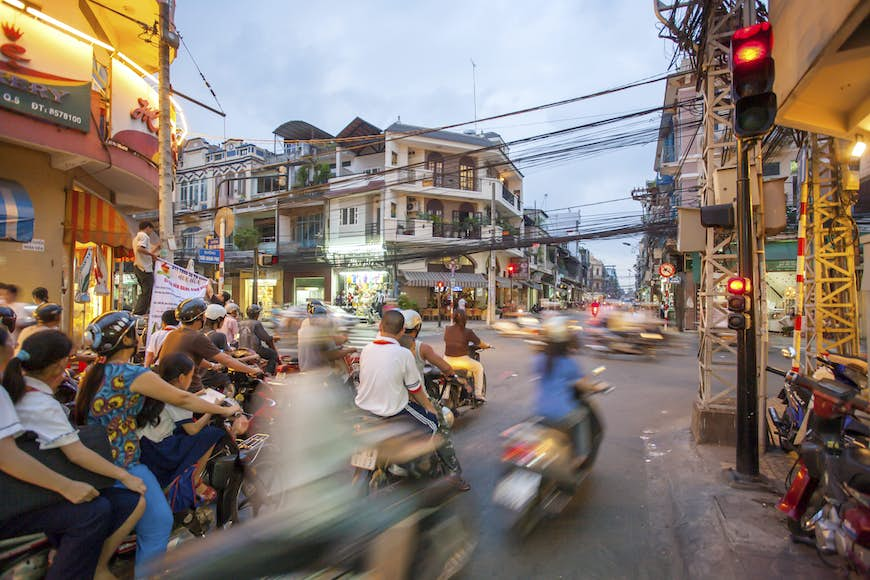
Buzzing Ho Chi Minh City can be a bit of a shock to the system © lichtbildfotograf / GettyPhú Quốc
Lapped by azure waters and edged with the kind of white-sand beaches that make sun-seekers sink to their weak knees,
Phú Quốc – way down in the south of Vietnam – is ideal for slipping into low gear, reaching for a seaside cocktail and toasting a copper sun as it dips into the sea. And if you want to notch it up a tad, grab a bike and hit the red-dirt roads: the island is relatively compact, and offers areas of natural, unblemished jungle alongside some newer, less-serene additions (a Vietnamese version of Disneyland and the world's longest over-sea cable car as two examples).
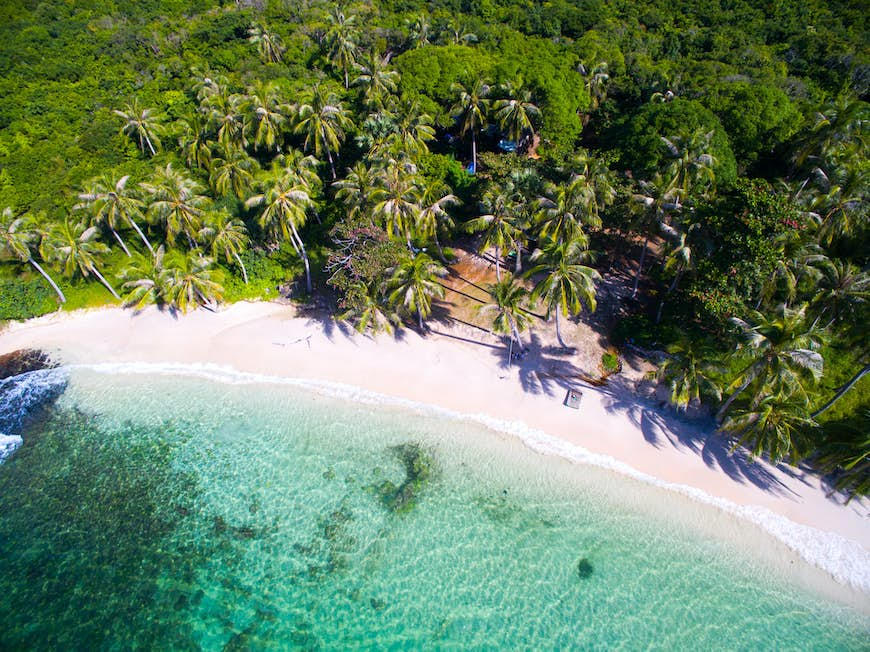
Phú Quốc's biggest asset is its wonderful coastline © Jimmy Tran / Shutterstock
Hanoi
Vietnam’s capital is a city with one foot buried in a fascinating past, while the other strides confidently toward tomorrow. Sample
Hanoi’s heady mix of history and ambition by wandering the streets of the Old Quarter, sipping an egg coffee (coffee prepared with egg yolks) or slurping on a hearty bowl of bun rieu cua (a sour crab noodle soup) while watching businessmen eat noodle breakfasts or play chess with goateed grandfathers. When you’re done, check out the crumbling decadence of the French Quarter then zip up the cosmopolitan Tay Ho for fine dining options and the lowdown on Hanoi’s growing art scene.
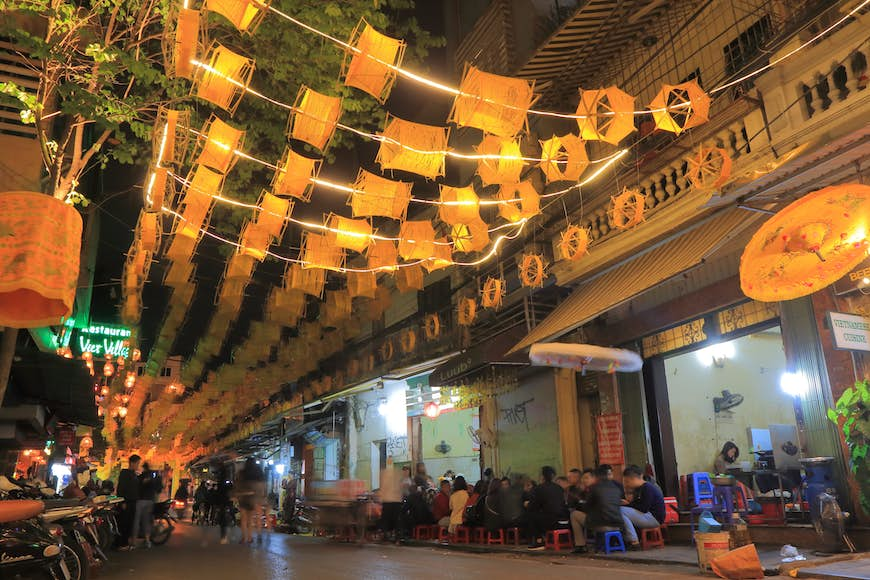
Hanoi's Old Quarter is a wonderful place to wander (and snack!) © TK Kurikawa / Shutterstock
Hội An
Historic
Hội An is Vietnam’s most atmospheric and charming town. Once a major port, it boasts the grand architecture and beguiling riverside setting that befit its heritage. The face of the Old Town has preserved its incredible legacy of tottering Japanese merchant houses, elaborate Chinese guildhalls and ancient tea warehouses – though, of course, residents and rice fields have been gradually replaced by tourist businesses. Lounge bars, boutique hotels, travel agents, a glut of tailor shops and vast numbers of daily tourists are very much part of the scene here. If it gets too much, hop on a bike to explore the town’s outskirts and pristine surroundings, where you’ll find that life moves at a much more sedate pace.
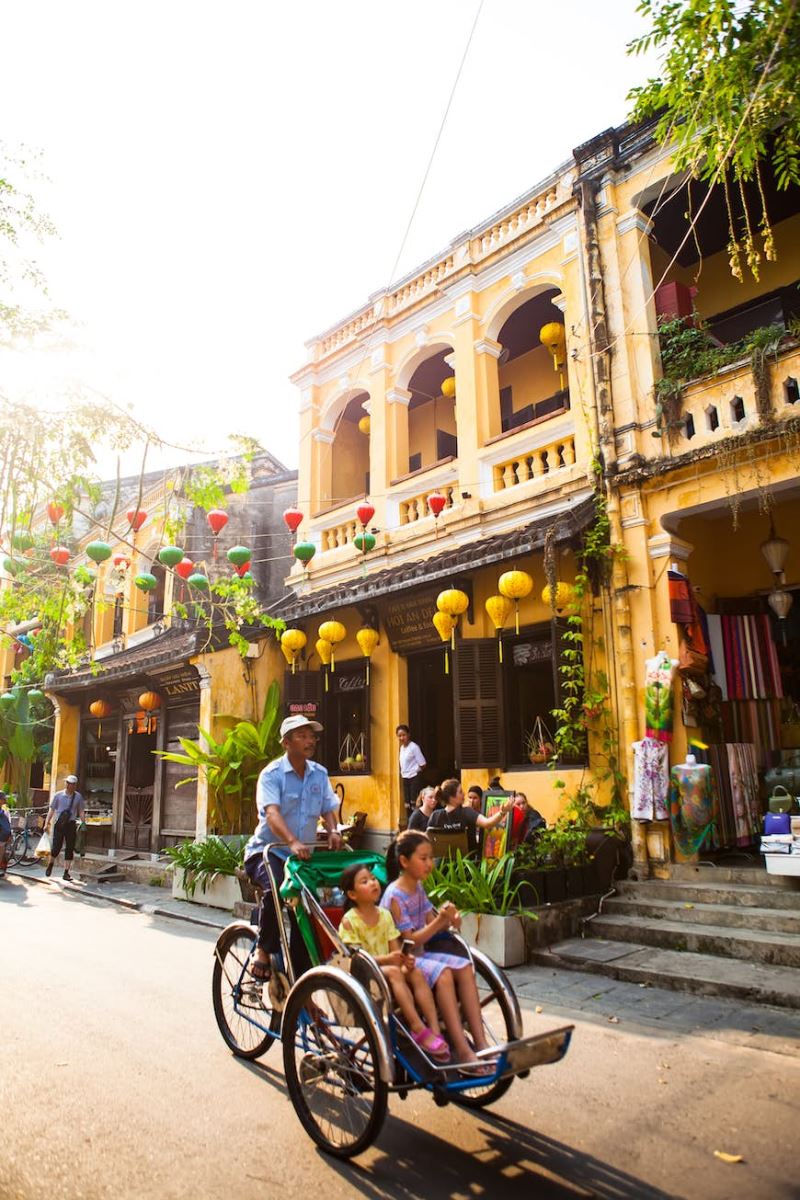
Despite the crowds, Hoi An is still one of Vietnam's most charming towns © luctra_design / Getty
Ba Be National Park
Detour off the regular Vietnam tourist trail in
Ba Be National Park, an essential destination for adventurous travelers. The scenery here swoops from limestone mountains peaking at 1554m down into plunging valleys wrapped in dense evergreen forests, speckled with waterfalls and lakes. The park is a haven for hundreds of wildlife species, including monkeys, bears and pangolins (the only mammals wholly-covered in scales) as well as the highly endangered Vietnamese salamander, while birders will want to keep an eye out for the spectacular crested serpent eagle and the oriental honey buzzard, which can be spied on boat trips or trekking excursions. After a day of animal-spotting, recharge in rustic homestays and village guesthouses of the local Tay ethnic minority.
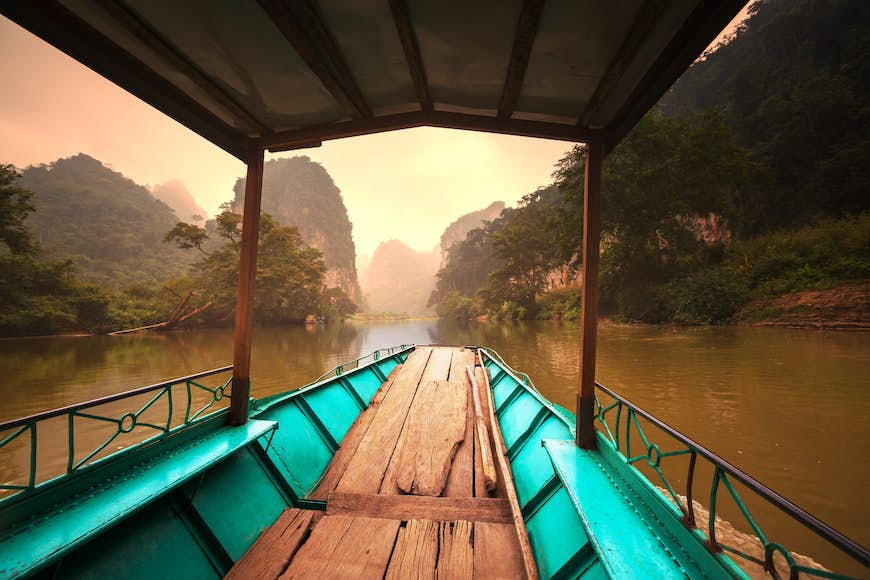
Explore Ba Be National Park on foot or by boat © Ingram Publishing / Getty
Nha Trang
The high-rise, high-energy beach resort of
Nha Trang enjoys a stunning setting: it's ringed by a necklace of hills, with a turquoise bay dotted with tropical islands. A sweeping crescent beach of white sand defines the shoreline, backed by an impressive promenade dotted with parks and sculpture gardens. Inland there's a cosmopolitan array of boutiques and dining options, but as restaurant service winds down for the evening, nightlife cranks up – central Nha Trang is a party town at heart. Looking for a more tranquil vibe? The city also makes for a great launching pad for a beach crawl up the coast to the city of Quy Nhon, with stops at Doc Let, Bai Bau and Bai Xep.
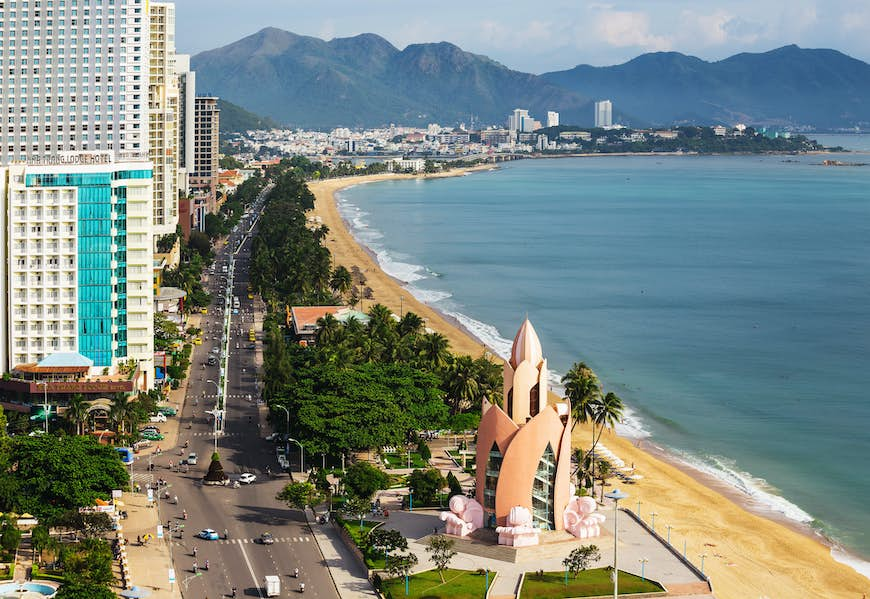
Nha Trang is good for both bar and beach crawling © Zhukov Oleg / Shutterstock
Huế
The capital of the nation in the 19th and early 20th centuries,
Huế is perhaps the easiest Vietnamese city to love and spend time in. Its situation on the banks of the Perfume River is sublime, its complex cuisine is justifiably famous, and its streets are relatively traffic-free. And that’s without mentioning the majesty of the Imperial City, a citadel within a citadel, housing the emperor’s residence, temples and palaces, and the main buildings of state, within six-meter-high, 2.5km-long walls. Explore the city’s fringes to find some of Vietnam’s most impressive pagodas and royal tombs, many in wonderful natural settings.
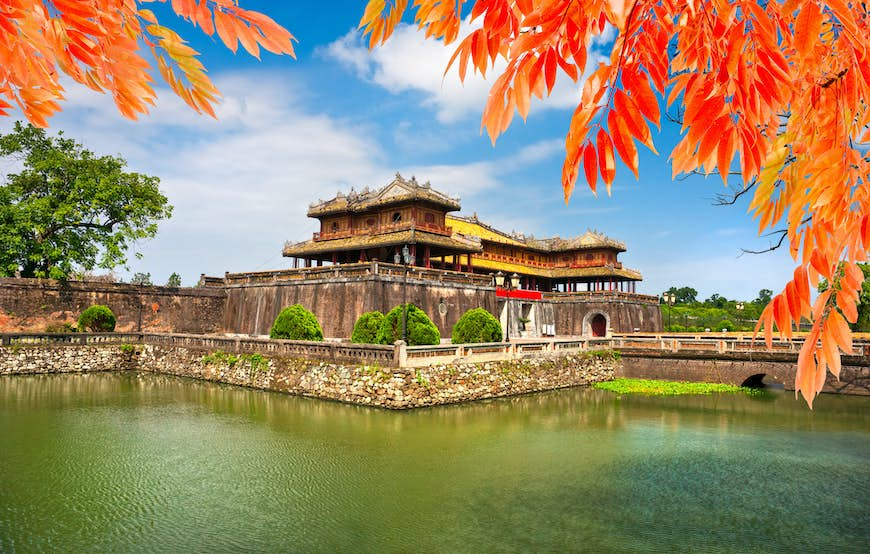
Entrance to the Imperial City in Huế © Luciano Mortula - LGM / Shutterstock
Hà Giang
Hà Giang province is Vietnam’s spectacular destination for intrepid cyclists, with dizzying ascents up the Quan Ba Pass (Heaven’s Gate), jaw-dropping vistas on the epic ride between Dong Van and Meo Vac and the opportunity to venture to Lung Cu, a hilltop flag tower that marks the most northern point of the country. And with improved roads, new trekking routes, and a wider choice of guesthouses, homestays and restaurants in the province’s small towns and villages, Vietnam’s far north is firmly planting itself on the travel map as a hotspot for cyclists and non-cyclists alike.
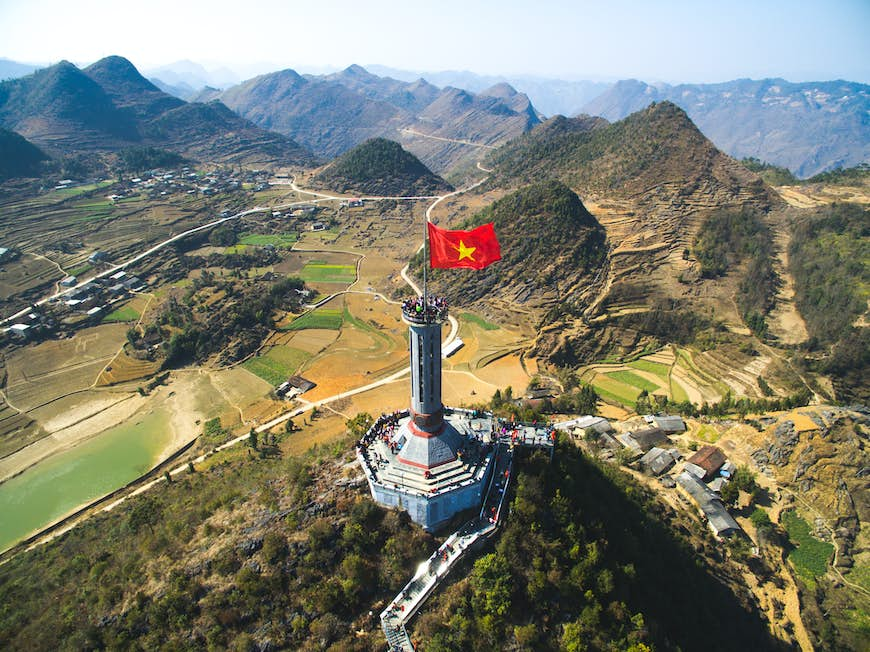
Venture to Lung Cu flag tower, the most northern point of Vietnam © Jimmy Tran / Shutterstock